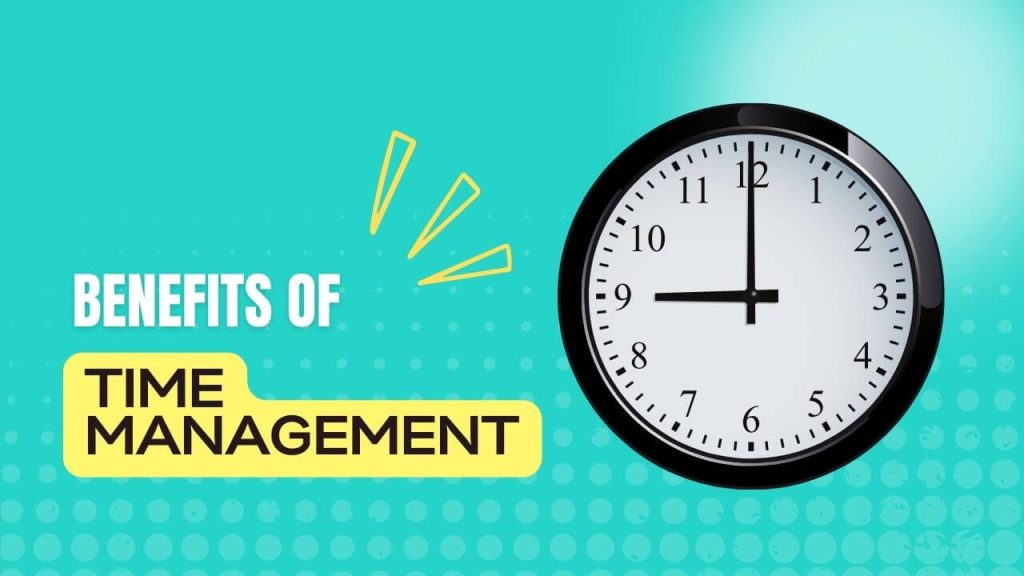Time Management Leads to Success
Time management is essential for success as it helps individuals prioritize tasks effectively, leading to increased productivity and achievement of goals. In our fast-paced and demanding world, time is a valuable resource that needs to be effectively managed to achieve success in personal and professional endeavors.
Successful individuals understand the importance of allocating their time wisely, ensuring that they focus on high-priority tasks and avoid wasting time on unproductive activities. Effective time management enables individuals to make the most of their limited time by prioritizing tasks, setting clear goals, and creating efficient schedules.
By following these practices, individuals can enhance their productivity, reduce stress levels, and ultimately increase their chances of achieving success in various aspects of their lives. In this blog post, we will explore the significance of time management and how it plays a crucial role in determining success.

Table of Contents
Benefits Of Time Management
Effective time management is a crucial skill that can lead to success in all aspects of life. By prioritizing tasks, setting goals, and organizing your schedule, you can achieve greater productivity, reduce stress, make better decisions, and maintain a healthier work-life balance. Let’s explore each of these benefits in more detail:
Increased Productivity
One of the key advantages of time management is the ability to increase productivity. When you manage your time efficiently, you can allocate dedicated blocks of time to specific tasks or projects. This focused approach allows you to concentrate fully on each task without distractions, resulting in improved efficiency and output.
Moreover, effective time management empowers you to identify and eliminate time-wasting activities. By eliminating or delegating non-essential tasks, you free up valuable time to focus on high-priority activities that directly contribute to your goals and objectives. This increased productivity not only enhances your performance but also boosts your professional reputation.
Reduced Stress
Another significant benefit of practicing good time management is the reduction in stress levels. When you have a clear plan and schedule, you are better equipped to handle your workload effectively. By breaking down tasks into manageable segments and setting realistic deadlines, you can prevent work from piling up and becoming overwhelming.
Furthermore, effective time management allows you to anticipate and plan for potential obstacles or delays. By identifying potential roadblocks in advance, you can proactively address them, minimizing stressful situations and ensuring a smoother workflow.
Improved Decision Making
Time management plays a crucial role in improving decision-making abilities. By effectively managing your time, you create space for reflection, analysis, and evaluation. This allows you to make clearer, more informed decisions, as you have the necessary time to gather and process information.
Additionally, proper time management provides you with the opportunity to consider alternative options and weigh their pros and cons. This thoughtful approach ensures that you make well-thought-out decisions, minimizing the likelihood of errors or hasty choices.
Better Work-life Balance
Finally, time management is essential for achieving a better work-life balance. By organizing your time effectively, you can allocate dedicated periods for work, family, personal pursuits, and relaxation. This balance helps prevent burnout, enhances overall well-being, and allows you to lead a fulfilling life both professionally and personally.
When you prioritize your tasks, set boundaries, and delegate when necessary, you can maintain harmony between your professional responsibilities and personal commitments. This balance not only improves your satisfaction with both areas of life but also leads to increased happiness, motivation, and overall success.

Key Principles Of Time Management
Time management is a critical skill that can greatly impact your productivity and success. By effectively managing your time, you can accomplish more in less time, reduce stress, and achieve your goals more efficiently. Here are the key principles of time management that can help you take control of your time and lead to success.
Setting Clear Goals
Setting clear goals is the foundation of effective time management. When you have a clear understanding of what you want to achieve, it becomes easier to prioritize your tasks and allocate your time accordingly. Take the time to define your goals, both short-term and long-term, and make sure they are specific, measurable, attainable, relevant, and time-bound (SMART). By having clarity about your objectives, you can stay focused and work towards accomplishing them.
Prioritizing Tasks
Prioritizing tasks is crucial to manage your time effectively. It involves identifying the most important and urgent tasks and tackling them first. One way to prioritize tasks is by using the Eisenhower Matrix, which categorizes tasks into four quadrants: urgent and important, important but not urgent, urgent but not important, and neither urgent nor important. By focusing on the tasks that are both urgent and important, you can avoid wasting time on less important activities.
Creating A Schedule
Creating a schedule helps you allocate your time to specific tasks and activities. It provides a roadmap for your day, allowing you to stay organized and on track. Start by identifying your most productive time of the day and allocating it to your most challenging tasks. Use a digital calendar or a planner to block out time for each task, ensuring that you allocate enough time for each activity. By following a schedule, you can be more efficient with your time and accomplish more in less time.
Eliminating Time Wasters
Time wasters can significantly impact your productivity and hinder your progress. Identify the activities that consume a significant amount of your time without adding value to your goals, and eliminate or minimize them. Common time wasters include excessive social media use, unnecessary meetings, procrastination, and excessive multitasking. By reducing or eliminating these time wasters, you can free up more time for important tasks and focus on what truly matters.
Delegating And Outsourcing
Delegating tasks to others and outsourcing certain activities can help you save time and focus on higher-value tasks. Identify the tasks that can be delegated to team members or outsourced to external resources. Effective delegation requires clear communication, trust in your team members’ capabilities, and regular follow-up to ensure tasks are completed on time. By leveraging the skills and expertise of others, you can lighten your workload and achieve more with less effort.
Avoiding Multitasking
Contrary to popular belief, multitasking is not an effective way to manage your time. Instead of increasing productivity, it often leads to decreased focus and lower-quality output. Instead, practice mono-tasking by focusing on one task at a time and giving it your full attention. This allows you to complete tasks more efficiently and maintain a higher level of concentration. Avoid the temptation to switch between tasks constantly and prioritize finishing one task before moving on to the next.
Using Time-blocking Techniques
Time-blocking is a technique that involves scheduling specific blocks of time for different tasks or activities. By allocating dedicated time slots for specific tasks, you can maintain focus and avoid interruptions. Start by identifying your most important tasks and assigning specific time slots for them. Be realistic and allow sufficient time for each task. During these time blocks, eliminate distractions and fully commit to the task at hand. By using time-blocking techniques, you can enhance productivity and make the most of your time.
Time Management Skills
Time management skills are crucial for success in both personal and professional endeavors. By effectively managing your time, you can improve productivity, reduce stress, and achieve your goals more efficiently. To develop effective time management skills, it is essential to focus on various aspects such as organization and planning, self-discipline, goal setting, task prioritization, procrastination management, effective communication, and problem-solving.
Organization And Planning
Being organized and having a structured plan are key elements of effective time management. By organizing your tasks and activities, you can set yourself up for success. This can be achieved by:
- Creating a to-do list or using a productivity app to track your tasks
- Breaking down larger tasks into smaller, manageable chunks
- Scheduling and allocating specific time slots for each task
Self-discipline
Self-discipline is the ability to stay focused and committed to your goals and tasks. It involves making conscious decisions, prioritizing your time, and avoiding distractions. To enhance your self-discipline:
- Avoid multitasking and focus on one task at a time
- Say no to activities that do not align with your priorities
- Create a productive work environment that minimizes distractions
Goal Setting
Setting clear, realistic goals is essential for effective time management. By establishing goals, you create a sense of purpose and direction. When setting goals:
- Ensure your goals are specific, measurable, attainable, relevant, and time-bound (SMART)
- Break down long-term goals into short-term milestones
- Regularly review and revise your goals to adapt to changing circumstances
Task Prioritization
Not all tasks are equal in terms of importance and urgency. Prioritizing tasks allows you to focus your time and energy on what matters most. Prioritization techniques can include:
- Identifying and focusing on high-priority tasks that align with your goals
- Using the Eisenhower Matrix to categorize tasks into urgent, important, not urgent, and not important
- Considering deadlines, dependencies, and potential impact when determining task priority
Procrastination Management
Procrastination is a common time management challenge that can hinder productivity. To overcome procrastination:
- Break tasks into smaller, more manageable segments
- Use the Pomodoro Technique to work in focused bursts with scheduled breaks
- Create accountability by sharing your goals and progress with others
Effective Communication
Effective communication is essential for coordinating tasks, clarifying expectations, and avoiding misunderstandings. To enhance your communication skills:
- Clearly express your needs, deadlines, and expectations to others
- Active listening and seeking clarification during conversations
- Utilizing appropriate communication channels, such as face-to-face discussions or written documentation
Problem-solving
Problem-solving skills are valuable for overcoming challenges and finding efficient solutions. When faced with obstacles:
- Break down the problem into smaller, more manageable parts
- Consider alternative approaches and brainstorm possible solutions
- Seek input and collaboration from others when necessary
Time Management Leads to Success
Strategies For Effective Time Management
Effective time management is crucial for achieving success in both personal and professional endeavors. By mastering the art of managing your time wisely, you can maximize productivity, minimize stress, and stay focused on your goals. To help you achieve this, here are some tried and tested strategies for effective time management:
Identify And Eliminate Time Wasters
One of the first steps to effective time management is identifying and eliminating time-wasting activities that eat up valuable minutes and hours. Whether it’s excessive social media scrolling, constantly checking emails, or engaging in unproductive conversations, these time wasters can significantly impact your productivity. Evaluate your daily routine, identify these time-stealers, and find ways to eliminate or limit them.

Use A Time Management System Or App
A time management system or app can be a game-changer when it comes to staying organized and productive. Consider using tools like Trello, Asana, or Todoist to create to-do lists, prioritize tasks, set reminders, and track your progress. These systems can help you allocate time effectively, ensuring nothing slips through the cracks and allowing you to focus on what’s important.
Establish Daily And Weekly Routines
Establishing daily and weekly routines can provide structure to your day and make time management more efficient. Create a schedule that allocates dedicated time slots for specific activities, such as work, exercise, self-care, and relaxation. By sticking to a routine, you’ll develop a rhythm that optimizes your productivity and allows you to make the most of your time.
Break Tasks Into Smaller Steps
Large and overwhelming tasks can often lead to procrastination or a lack of focus. To combat this, break down your tasks into smaller, more manageable steps. By dividing your workload, you can tackle each component with greater clarity and efficiency. This approach also allows for a sense of accomplishment as you complete each step, motivating you to keep moving forward.
Batch Similar Tasks Together
Batching similar tasks together is a strategy that helps you streamline your workflow and minimize time wasted on transitioning between different activities. For example, block out specific times of the day to respond to emails, make phone calls, or attend meetings. By bundling similar activities, you retain focus and reduce the mental energy required to switch between different tasks.
Take Regular Breaks
While it may seem counterintuitive, taking regular breaks is essential for maintaining productivity and preventing burnout. Allocating short breaks throughout your day allows your mind to recharge and refocus. Use these breaks to stretch, walk, practice mindfulness, or engage in activities that help you relax. Remember, breaks should be planned and purposeful rather than haphazardly taken.
Learn To Say No
Learning to say no is a skill that can greatly impact your ability to manage your time effectively. By setting boundaries and prioritizing your commitments, you can avoid overloading your schedule with tasks that aren’t aligned with your goals or priorities. Saying no doesn’t make you selfish; it allows you to allocate your time and energy to what truly matters.
Set Realistic Deadlines
Setting realistic deadlines is crucial for effective time management. Be honest with yourself about how long certain tasks will take, factoring in potential obstacles or unexpected interruptions. Avoid setting unrealistic expectations that only lead to stress and burnout. Remember, it’s better to complete tasks well within a reasonable timeframe than to rush through them due to unrealistic deadlines.
Reward Yourself For Achievements
Lastly, remember to celebrate and reward yourself for achieving your time management goals. Whether it’s completing a challenging project or staying focused throughout the day, acknowledging your accomplishments keeps you motivated and reinforces positive habits. Treat yourself to something you enjoy, whether it’s a delicious meal, a leisurely activity, or simply a well-deserved break. Rewards provide the necessary incentive to continue practicing effective time management.
Challenges In Time Management
Effective time management is crucial for achieving success in both personal and professional endeavors. However, there are several common challenges that individuals often face when trying to manage their time efficiently. By identifying and understanding these challenges, we can proactively address them and pave the way towards increased productivity. In this article, we delve into some of the key challenges that hinder effective time management.
Procrastination
Procrastination, often referred to as the enemy of productivity, is a challenge of time management that affects individuals across all walks of life. The tendency to delay tasks can be attributed to various factors, such as lack of motivation, fear of failure, or simply an imbalance between work and relaxation. Procrastination can lead to a backlog of pending tasks, causing stress and impacting overall productivity. To overcome this challenge, it is essential to build self-discipline and adopt strategies like setting deadlines, breaking tasks into smaller, manageable chunks, and rewarding oneself upon completion.
Interruptions And Distractions
In today’s digital age, interruptions and distractions have become ubiquitous, greatly impacting our ability to manage time effectively. Constant notifications, social media, and the allure of browsing the internet can divert our attention from important tasks, thereby stealing valuable time. To combat this challenge, it is crucial to identify and eliminate or minimize distractions. This can involve turning off notifications, setting specific blocks of uninterrupted work time, and creating a dedicated workspace free from distractions. Moreover, practicing mindfulness and implementing time-blocking techniques can help maintain focus and prioritize efficiently.
Overcommitment
Overcommitment is a significant challenge that often derails effective time management. When we take on more tasks or responsibilities than we can realistically handle, it leads to a scarcity of time and increased stress levels. Saying no and setting boundaries are essential skills that can help us manage our commitments effectively. By carefully assessing our capacity and learning to delegate tasks when necessary, we can prevent overcommitment and ensure a healthy work-life balance.
Lack Of Prioritization
A lack of prioritization is another challenge that can impede the efficient use of time. Without setting clear goals and priorities, individuals may find themselves getting busier without achieving meaningful progress. Establishing a system of prioritization, such as using to-do lists or utilizing productivity tools, can help us allocate time and resources wisely. By identifying the most critical tasks and focusing on them first, we can ensure that our time is spent on activities that align with our goals and yield the greatest results.
Failure To Delegate
Failure to delegate tasks is a common challenge faced by individuals who struggle with time management. The reluctance to ask for help or entrust others with responsibilities can lead to an overwhelming workload and an inefficient use of time. Learning to delegate effectively involves recognizing each team member’s strengths, distributing tasks accordingly, and providing clear instructions. Delegation not only allows for the optimal utilization of resources but also empowers others and fosters a collaborative work environment.
By addressing these challenges head-on, we can enhance our time management skills and unlock our true potential for success. Through self-awareness, effective strategies, and a strong commitment to productivity, we can navigate the obstacles that time management presents and pursue achievement with greater efficiency.
Tips For Overcoming Time Management Challenges
Time management is a crucial skill that can lead to success in both your personal and professional life. However, many people struggle with managing their time effectively, leading to stress, missed deadlines, and a lack of productivity. The good news is that there are several strategies you can implement to overcome common time management challenges and improve your overall productivity. In this article, we will explore some actionable tips that will help you manage your time more efficiently.
Recognize And Address Procrastination
Procrastination is the enemy of productivity. It is the habit of delaying or postponing tasks, even when we know they are important. To overcome procrastination, you need to recognize it when it happens and take immediate action. A helpful technique is the “two-minute rule”: if a task takes less than two minutes to complete, do it right away. Additionally, breaking down larger tasks into smaller, more manageable chunks can make them feel less overwhelming and easier to tackle.
Create A Distraction-free Environment
A distraction-free environment is essential for staying focused and making the most of your time. Identify the factors that distract you the most, such as social media, phone notifications, or noisy surroundings, and take steps to eliminate or minimize them. Consider using productivity tools and apps that block distractions and help you stay on track. Designating a specific workspace, free from clutter and distractions, can also contribute to a more focused and efficient work environment.
Learn To Say No
One of the biggest challenges for many individuals is the inability to say no. Taking on too many commitments and tasks can quickly overwhelm your schedule and lead to burnout. It’s important to learn to prioritize your tasks and goals, and politely decline requests that do not align with your priorities. Remember, saying no is not a sign of weakness, but rather a way to protect your time and energy.
Delegate Tasks
Delegation is an effective way to maximize your time and efficiency. Identify tasks that can be delegated to others, whether it be colleagues, subordinates, or outsourcing services. Delegating allows you to focus on higher-priority tasks and frees up your time for more important responsibilities. Prioritize tasks that only you can do and delegate the rest to capable individuals.
Learn To Prioritize
Prioritization is key to effective time management. Take the time to assess your tasks and obligations, and determine which ones are the most important and urgent. Use techniques such as the Eisenhower Matrix, which categorizes tasks into four quadrants based on their urgency and importance. By focusing on tasks that are both important and urgent, you can maximize your productivity and ensure that you are allocating your time efficiently.
Take Regular Breaks
While it may seem counterintuitive, taking regular breaks can improve your productivity. Research has shown that taking short breaks throughout the day can help maintain focus and prevent burnout. Use the Pomodoro Technique, where you work for a set period (usually 25 minutes) and then take a short break, to structure your work sessions. During your breaks, engage in activities that help you relax and recharge, such as stretching, going for a walk, or practicing deep breathing exercises.
Seek Support And Accountability
It can be helpful to seek support and accountability when it comes to managing your time effectively. Share your goals and challenges with a trusted friend, colleague, or mentor who can provide guidance and hold you accountable. Consider joining a productivity or time management group or finding a productivity buddy who can help you stay on track and motivated.
Practice Timeboxing
Timeboxing is a technique that involves allocating specific time slots for different tasks and activities. By assigning a set amount of time to each task, you create a sense of urgency and improve your focus and productivity. Use a calendar or a planner to block out dedicated time slots for each task. Stick to these time constraints, and when the time is up, move on to the next task. Timeboxing helps prevent tasks from dragging on and ensures that you allocate enough time for all your responsibilities.
Time Management Techniques
Effective time management is a crucial skill that can significantly impact your productivity and overall success. By implementing various time management techniques, you can prioritize tasks, eliminate distractions, and achieve your goals more efficiently. In this article, we will explore several popular techniques that can help you make the most of your time. Let’s dive in!
Pomodoro Technique
The Pomodoro Technique is a simple yet powerful time management method. Named after the Italian word for “tomato,” this technique involves breaking your work into intervals called “pomodoros” that are typically 25 minutes long. After each pomodoro, you take a short break of 5 minutes. Every fourth break is an extended break of 15-30 minutes.
The beauty of the Pomodoro Technique lies in its ability to sustain focus while preventing burnout. By working in short bursts with regular breaks, you can maintain your energy levels, overcome procrastination, and improve your concentration.
Eisenhower Matrix
The Eisenhower Matrix, also known as the Urgent-Important Matrix, is a powerful tool for prioritizing tasks. It divides your tasks into four quadrants based on their urgency and importance:
| Important | Not Important | |
| Urgent | Do First | Delegate |
| Not Urgent | Schedule | Don’t Do |
By categorizing tasks in this manner, the Eisenhower Matrix helps you identify and prioritize the most critical and time-sensitive activities, allowing you to focus on what truly matters.
Getting Things Done (gtd)
The Getting Things Done (GTD) method, popularized by productivity expert David Allen, provides a comprehensive framework for managing tasks and projects. This technique emphasizes capturing all your thoughts, ideas, and to-dos into an external system, so your mind remains clear and focused.
The GTD method involves breaking down your tasks into actionable steps, organizing them into different categories, and regularly reviewing and updating your system. By adopting this method, you can reduce mental clutter, increase productivity, and gain a sense of control over your workload.
The Two-minute Rule
The Two-Minute Rule, coined by productivity guru David Allen, states that if a task takes less than two minutes to complete, you should do it immediately, rather than adding it to your to-do list. This rule prevents small and quick tasks from piling up, saving you time and mental energy.
By tackling small tasks promptly, you can maintain momentum and prevent them from becoming a hindrance to your productivity. Remember, even seemingly insignificant tasks can have a cumulative effect on your overall efficiency.
Eat The Frog
Mark Twain famously said, “Eat a live frog first thing in the morning, and nothing worse will happen to you the rest of the day.” The “Eat the Frog” technique is based on the idea that if you tackle your most challenging and dreaded task first thing in the morning, you’ll experience a psychological boost and a sense of accomplishment that will propel you forward throughout the day.
By prioritizing and handling difficult tasks early on, you can alleviate stress and free up mental space for more enjoyable activities. Procrastination often stems from fear or discomfort, so once you “eat the frog,” the rest of your day becomes more manageable.
These time management techniques provide valuable frameworks and strategies that can help you optimize your productivity and achieve success in various areas of your life. Experiment with different methods and adapt them to your personal preferences and work style.
Remember, managing your time effectively is an ongoing process, so be patient with yourself as you develop these new habits. With consistent practice and determination, you’ll be well on your way to accomplishing more and reaching your goals.

Credit: www.simplilearn.com
Time Management Leads to Success
Personalized Time Management Strategies
When it comes to managing our time effectively, there is no one-size-fits-all solution. Each individual has their unique work style, energy levels, and preferences. That’s where personalized time management strategies come into play. By understanding our work styles, identifying peak productivity times, adapting strategies to our individual needs, experimenting and iterating, and seeking feedback and evaluation, we can optimize our use of time and pave the way for success.
Understanding Personal Work Styles
Everyone has their preferred way of working. Some people thrive in a structured environment with set routines and schedules, while others prefer a more flexible and spontaneous approach. It’s important to recognize and understand your personal work style to effectively manage your time. Take some time to self-reflect and analyze what type of environment, structure, and routine works best for you. This will serve as a foundation for developing personalized time management strategies that align with your needs and preferences.
Identifying Peak Productivity Times
We all have specific times of the day when we feel most alert, focused, and energized. These are our peak productivity times. By identifying your peak productivity times, you can allocate your most important and demanding tasks to these periods. Whether you’re a morning person ready to conquer the world at dawn or a night owl who thrives under the moonlight, aligning your key tasks with your peak productivity times can lead to greater efficiency and effectiveness.
Adapting Strategies To Individual Needs
Time management strategies are not set in stone. They need to be adaptable to suit your individual needs and circumstances. As you gain a better understanding of your work style and identify your peak productivity times, you can tailor your strategies accordingly. For example, if you find that you work best in short bursts of intense focus followed by breaks, you can adopt the Pomodoro technique. The key is to experiment and find what works best for you.
Experimenting And Iterating
Time management is an ongoing process of experimentation and iteration. What works for you today may not work tomorrow. It’s essential to be open to trying new approaches and techniques to optimize your time management. Don’t be afraid to step out of your comfort zone and experiment with different strategies. Keep track of your progress and make adjustments along the way. Continually refining and iterating your time management strategies will help you reach new levels of productivity and success.
Seeking Feedback And Evaluation
Feedback is invaluable when it comes to improving your time management skills. Seek input and insights from colleagues, mentors, or trusted advisors. They may offer fresh perspectives and suggest areas for improvement that you may not have considered. Regularly evaluate your time management practices and make adjustments based on feedback and self-reflection. By continuously learning and evolving, you can develop effective time management strategies that align with your goals and aspirations.
Time Management Tools And Apps
Effective time management is a key factor in achieving success. This is where time management tools and apps come in handy. With the ever-increasing demands of work and personal life, staying organized and on track can be challenging. However, with the right tools and apps, you can take control of your time and maximize your productivity. In this section, we will explore some essential time management tools and apps that can help you stay organized, manage tasks efficiently, take notes, and effectively manage projects.
Calendar Apps
Calendar apps are essential tools for managing your schedule, appointments, and deadlines. They allow you to easily plan and allocate time for various activities, ensuring that you stay on top of your commitments. Some popular calendar apps include:
- Google Calendar: A widely used and free calendar app that seamlessly integrates with other Google services. It allows you to add events, set reminders, and share calendars with others.
- Microsoft Outlook: A comprehensive calendar app that offers features like scheduling meetings, managing multiple calendars, and syncing with other Microsoft tools.
- Apple Calendar: A native calendar app for Apple devices that offers an intuitive interface and features like event invitations, reminders, and syncing with other Apple services.
Task Management Apps
Task management apps are designed to help you organize your to-do lists, prioritize tasks, and track your progress. These apps provide a visual representation of your tasks and enable you to set due dates and reminders. Here are some popular task management apps:
- Todoist: A powerful and user-friendly app that allows you to create tasks, set due dates, and assign priorities. It also offers features like file attachments and collaboration options.
- Asana: A versatile app that enables you to create and manage projects, assign tasks, and track progress. It offers various views, such as boards and calendars, to help you visualize your workflow.
- Trello: A popular app that uses boards, lists, and cards to help you stay organized. It allows you to create tasks, assign them to team members, and track their status.
Note-taking Apps
Note-taking apps are useful for capturing ideas, jotting down important information, and organizing your thoughts. These apps provide features like syncing across devices, creating different notebooks, and formatting options. Here are some noteworthy note-taking apps:
- Evernote: A versatile app that allows you to create and organize notes, save web articles, and attach files. It offers features like tagging, searchability, and syncing across devices.
- OneNote: A robust app from Microsoft that offers features like free-form note-taking, drawing tools, and integration with other Microsoft apps. It also provides options for organizing notes into sections and notebooks.
- Google Keep: A simple and intuitive app that enables you to create notes, add reminders, and collaborate with others. It syncs seamlessly with other Google services like Google Drive.
Project Management Tools
Project management tools are designed to help you plan, track, and collaborate on projects effectively. These tools provide features like task assignments, progress tracking, and team communication. Consider the following project management tools for your projects:
| Tool | Description |
| Jira | A comprehensive tool that offers features like task tracking, workflow management, and reporting. It is widely used in software development and agile project management. |
| Basecamp | A user-friendly tool that allows you to create projects, assign tasks, and share files. It emphasizes simplicity and collaboration, making it suitable for various types of projects. |
| Asana | As mentioned earlier, Asana is not only a great task management app but also offers project management functionalities. It allows you to create and manage projects, assign tasks, and track progress. |
By utilizing these time management tools and apps, you can streamline your workflow, prioritize tasks, and efficiently manage your time. Whether you need assistance with scheduling, task organization, note-taking, or project management, there is a tool or app available to help you stay on top of your busy schedule and achieve success.
Common Mistakes In Time Management
Effective time management is a crucial skill that can significantly impact your productivity, efficiency, and ultimately, your success. However, many individuals struggle with managing their time effectively, falling victim to common mistakes that hinder their progress. In this blog post, we will explore some of these mistakes and offer tips to overcome them. By understanding and avoiding these pitfalls, you can improve your time management skills and unlock your full potential.
Failing To Plan
One of the most critical mistakes people make in time management is failing to plan. Without a clear plan, it becomes easy to get swept away by distractions and lose sight of your goals. To address this, it is crucial to create a structured schedule that outlines your tasks and priorities for the day, week, or month ahead. Take advantage of time management tools and techniques to help you stay organized and accountable. Remember, a well-thought-out plan sets the foundation for efficient time management.
Overcomplicating Systems
Another common mistake individuals make is overcomplicating their time management systems. Complexity often leads to confusion, inefficiency, and wasted time. Keep your systems simple. Avoid unnecessary steps, elaborate processes, or intricate tools that require extensive time and effort to maintain. Instead, focus on finding tools and methods that are easy to use and align with your specific needs. Streamlining your systems not only saves time but also reduces stress and improves overall productivity.
Ignoring Flexibility
While having a well-structured plan is essential, it is equally important to embrace flexibility. Rigidity can hinder your ability to adapt to unexpected events or shifting priorities, causing stress and demotivation. Incorporate buffer time into your schedule, allowing room for unexpected tasks or challenges. Embrace the concept of prioritization, being ready to shift your focus as needed. By maintaining a degree of flexibility, you can better manage your time and handle unforeseen circumstances effectively.
Not Seeking Continuous Improvement
Finally, a mistake many individuals make is failing to seek continuous improvement in their time management skills. Time management is an ongoing process that requires conscious effort and adaptation. Regularly assess and analyze your current systems and practices, looking for areas of improvement. Stay updated on new tools, techniques, and strategies that may enhance your time management abilities. Continuous learning and improvement will enable you to refine your skills, optimize your productivity, and achieve greater success.
Frequently Asked Questions Of Time Management Leads To Success
How Does Time Management Lead To Success?
Time management leads to success by enabling individuals to prioritize tasks, increase productivity, and meet deadlines effectively. By effectively allocating time, individuals can accomplish more, reduce stress, and achieve their goals efficiently. Successful time management fosters organization, focus, and discipline, leading to improved performance and overall success in various aspects of life.
What Are The Benefits Of Time Management?
Effective time management has numerous benefits including increased productivity, reduced stress levels, improved decision-making, and better work-life balance. It helps prioritize tasks, meet deadlines, and allow for more efficient use of time. By planning and organizing, individuals can achieve their goals and have more time for important activities.
How Important Is Time For Achieving Success?
Time is crucial for achieving success. It enables us to plan, execute tasks, and learn from experiences. Managing time effectively helps us prioritize goals, stay motivated, and complete tasks efficiently. Success is directly related to how we utilize time and make the most of every moment.
Why Do Successful People Care About Time Management?
Successful people care about time management because it helps them prioritize tasks, increase productivity, and achieve their goals efficiently. Effective time management allows them to stay focused, avoid distractions, and make the most out of their limited resources. Consequently, it enables them to consistently meet deadlines and maintain a work-life balance, leading to greater success.
Conclusion
Time management plays a crucial role in achieving success. By effectively managing our time, we can prioritize tasks, increase productivity, and reduce stress. Successful individuals understand the value of time and use it wisely to make the most of their resources.
Developing good time management skills empowers us to meet deadlines, set goals, and maintain a healthy work-life balance. So, let’s prioritize our time and pave the way to success.




